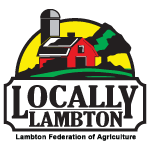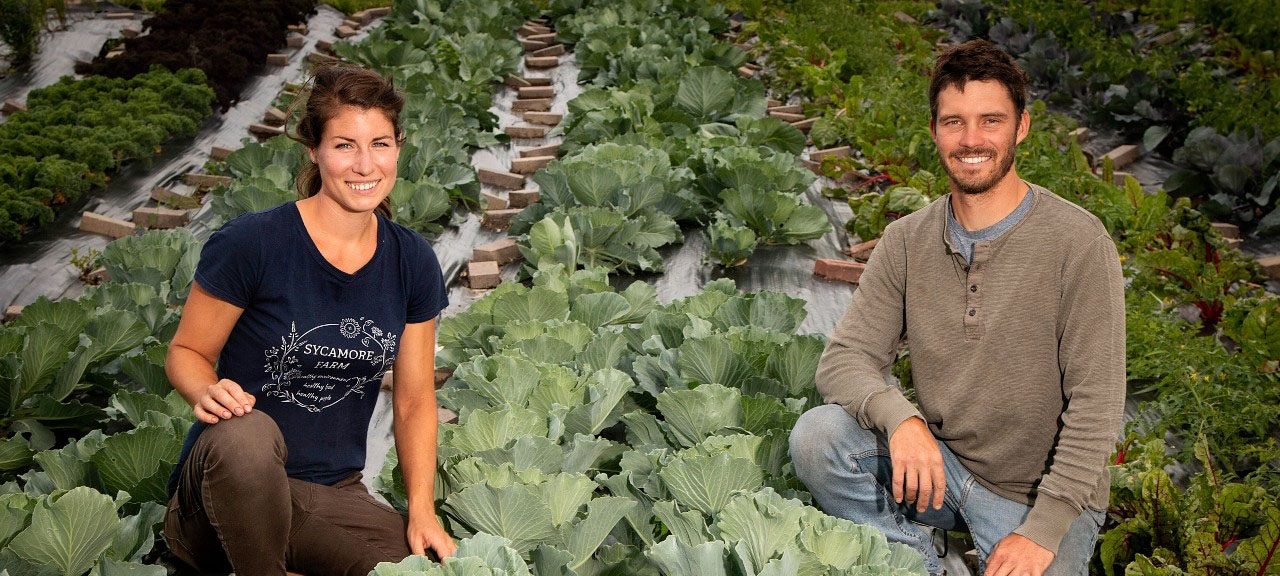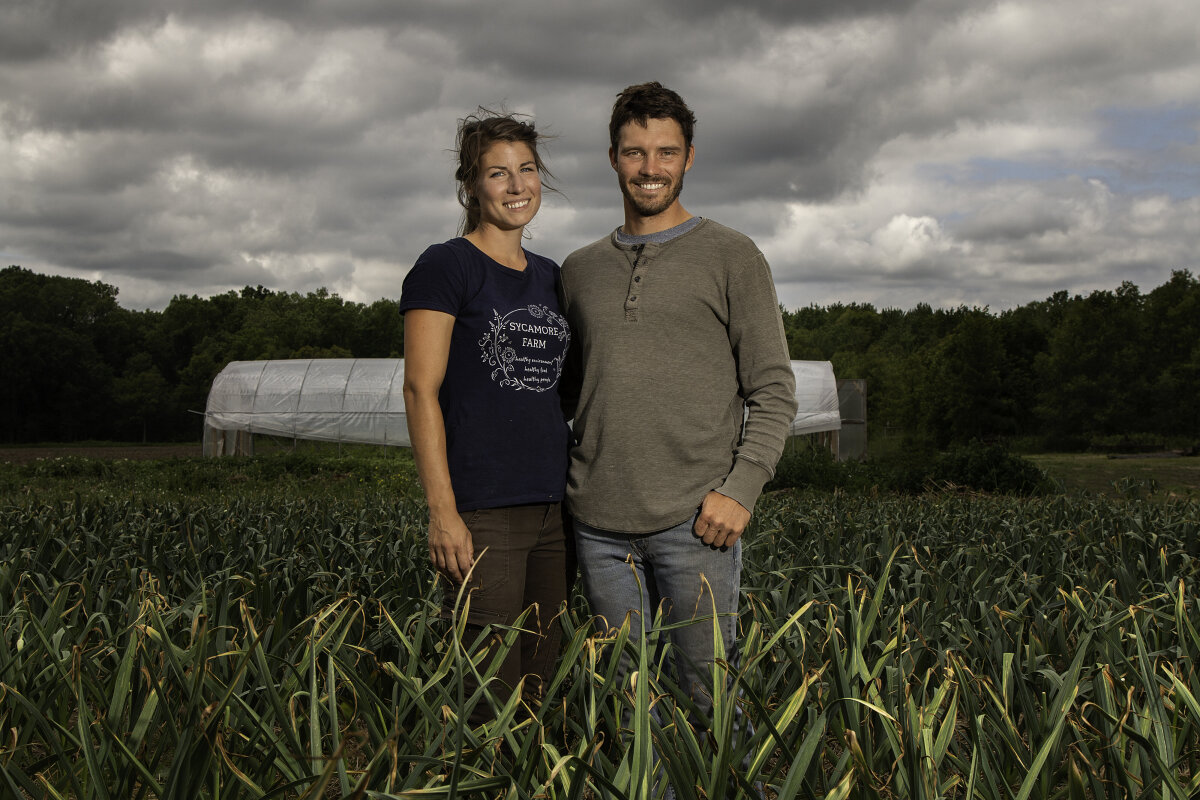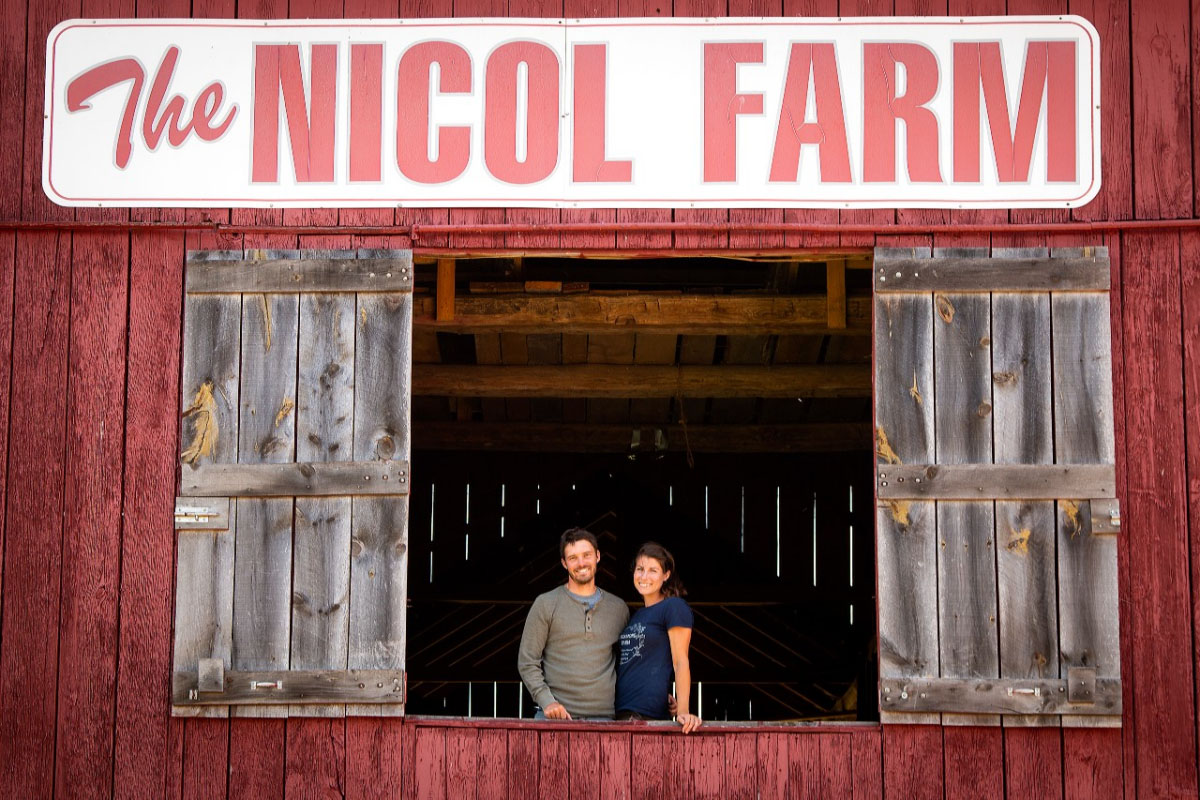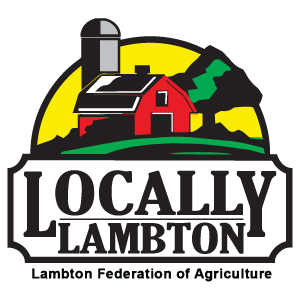What started out as a beekeeping and gardening hobby for Felicia Nicol has transitioned into a full-time job.
Felicia and her husband, Justin, own and operate Sycamore Farm in Courtright, ON, which includes 1.5 acres of mixed vegetables, a grass-fed highland cattle fold, and an apiary of up to 50 beehives.
They sell their farm products through an online store, two local farmers markets, and at a roadside stand. In 2021, they started offering a vegetable subscription which provided customers with a weekly bag of seasonal vegetables direct from the farm to their doorstep.
For Felicia, 30, running Sycamore Farm is a dream come true.
“I didn’t grow up on a farm, but I was always interested in agriculture,” Felicia says.
“When I was at school studying environmental science, I had the option to take a few agriculture courses. That is what made me really interested in doing something in agriculture.”
After graduating, Felicia met her husband. At the time he had a garden on his family’s farm where he was growing vegetables. “We started by working together at that, and then we grew.”
Felicia graduated from the University of Guelph with a BSc in Environmental Science and a Masters in Integrative Biology. Justin, a 32-year-old horticulturist, graduated from the Niagara Parks School of Horticulture.
“The family farm is 75 acres, but we grow vegetables on just over an acre,” Felicia says. “My husband and brother-in-law grow organic cash crops on the rest of the farm.”
In addition to farming, the Nicols have done a lot of tree planting and prairie restoration.
“We’re able to do some projects to enhance habitat as well. I could never work an office job. This is my way of applying my passion for the environment and what I learned at school where I feel like I am making a practical difference.”
The Nicols sell honey and a mix of vegetables at Sycamore Farm.
“We sell safe, healthy food. We don’t use any chemicals or pesticides on the food we are growing. We are building healthy soil that is balanced with the proper nutrients so the food we are growing is very nutrient-dense; very fresh and very healthy. You can taste the difference; just that density of micro-nutrients that you might not get in something grown hydroponically.” says Felicia.
While Sycamore Farm is not certified organic, Felicia says she and Justin follow organic practices.
“We don’t use any chemicals to control the weeds or pests,” Felicia says. “And for the fertility of the soil, we just use compost, organic certified minerals, and liquid fish fertilizer, all-natural products.”
They also use regenerative agricultural practices, which focus on building up the soil.
“For us, on our small scale, this means we minimize disturbance of the soil, add compost and minerals based on regular soil tests, and plant cover crops.”
Planting cover crops is the practice of sowing a crop solely for the benefit of the soil between cash crops. This provides benefits to the soil such as protection from erosion, feeding the microbe community, building soil carbon.
It’s all about taking care of what’s there.
~Hashtag Local~
Business Profile
Photo Credits: Jeff McCoy of Kaoss Studios
